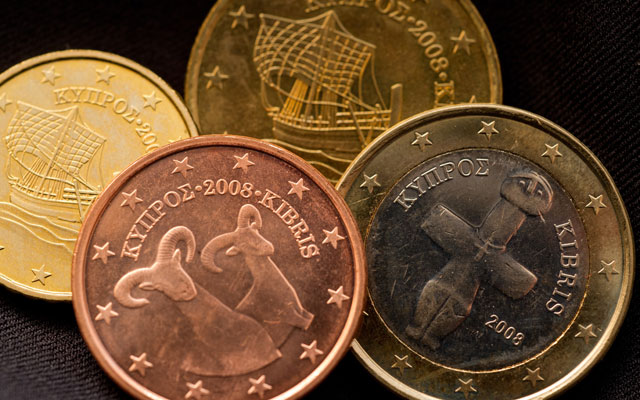Patrick Pleul/dpa/picture-alliance/Newscom
The Republic of Cyprus has agreed to a eurozone bailout that will raid the bank accounts of Cyprus residents.
In July 2012, the Republic of Cyprus became the fifth eurozone member to request a bailout. Eight months later, Cyprus has agreed to a €10 billion ($13 billion) bailout package with its eurozone peers and the troika of the European Central Bank, the European Commission, and the International Monetary Fund.
In order to help fund this bailout, a tax will be levied on the private holdings in Cypriot bank accounts. To avoid panic and a run on the banks, the decision was announced when banks were closed. But ATMs are now all but empty and online bank transfers have been suspended. Banks remain closed today in Cyprus due to a public holiday, and may stay that way for another day or two.
This is the reality of more than 1.1 million people living in Cyprus. The rich and poor alike will have their money raided by the government. The exact details of the plan are still being discussed. However, it is expected that those with less than €100,000 in their bank accounts will see 3 percent of it taken by the government to fund the bail out. Those with between €100,000 and €500,000 in their accounts will lose 10 percent and those over €500,000 will lose 15 percent.
This will affect every single person who has money held in a Cypriot bank. This includes non-Cypriots such as wealthy Russian oligarchs and the almost 1,000 Americans estimated to be living in Cyprus.
Recently, Wolfgang Schäuble, German Minister of Finance, told the world that Europe is “over the worst of the crisis.” This must sound absolutely ridiculous to those about to lose up to 15 percent of their money held in Cypriot banks. Already, finger pointing is taking place across Europe, but as there were so many people involved in this controversial bailout, nobody knows where to apportion blame.
The eurozone crisis has revealed deep cracks in the whole European Project. The hubris of those wanting to establish a European super-state at whatever cost hide behind the Brussels bureaucracy while the average European suffers. If the EU backs these draconian economic measures in Cyprus, there will be nothing stopping them from supporting similar acts in other ailing eurozone economies—countries like Ireland, Italy, Portugal, and Spain should consider this a warning.
Will there be an end to the misery or will it be misery without end? Europe needs to return to the fundamental basics of democracy. Power needs to be brought back to the member states and to the people. Economic policies of growth need to be pursued. The intrusive and excessive EU regulations need to be curtailed. The wasteful spending in Brussels needs to end. The excessive borrowing and entitlement programs need to stop. Until this happens, the people of Europe will pay dearly for the incompetency of Brussels.
Source material can be found at this site.










